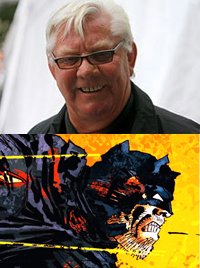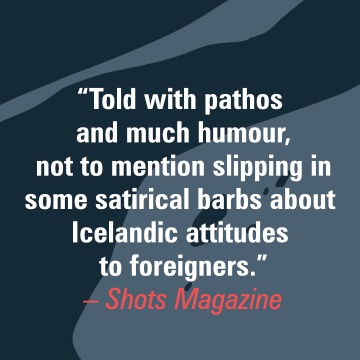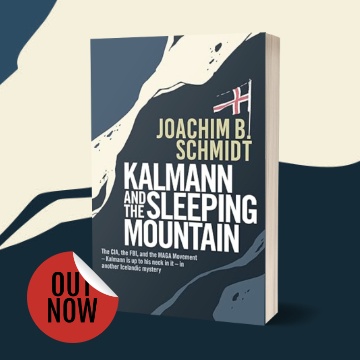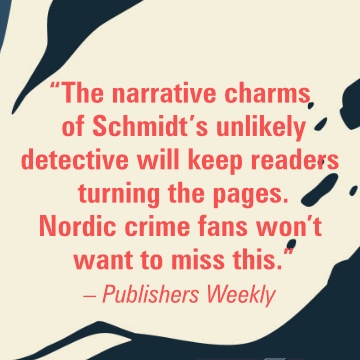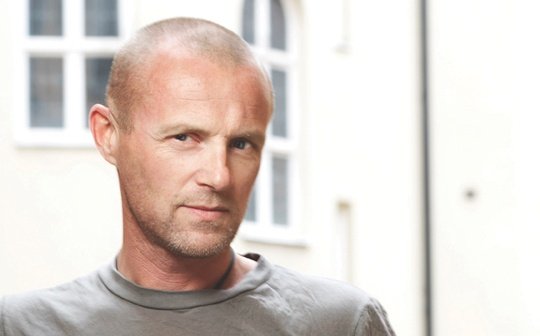 Yesterday saw the release of Jo Nesbo’s new novel, Police. With over 20 million books sold, the Norwegian author has become the most sought-after name in Scandinavian crime fiction and Police has been anxiously awaited by fans. The book is the ninth in the Harry Hole series, which includes the excellent thriller The Snowman, as well as Phantom, a crime fiction novel with a particularly jaw-dropping ending. To support the launch of Police, Jo Nesbo is on tour in the UK and we managed to catch up with him this morning…
Yesterday saw the release of Jo Nesbo’s new novel, Police. With over 20 million books sold, the Norwegian author has become the most sought-after name in Scandinavian crime fiction and Police has been anxiously awaited by fans. The book is the ninth in the Harry Hole series, which includes the excellent thriller The Snowman, as well as Phantom, a crime fiction novel with a particularly jaw-dropping ending. To support the launch of Police, Jo Nesbo is on tour in the UK and we managed to catch up with him this morning…
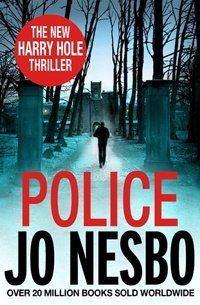 What are crime fiction lovers going to love about Police?
What are crime fiction lovers going to love about Police?
Ahhh! I’m not sure. I don’t think like that, about what to love about it, and I find it hard to promote my book like that. The audience I have in mind is not a big audience, it’s just two friends of mine, but hopefully it’s good entertainment. I see myself as an entertainer and it’s another chapter in the history of Harry Hole.
In this book more things happens to Harry than in any of the other books and there are greater changes in his life. But the set-up of the story is at old crime scenes dead people start showing up, police officers who were involved in the investigations of the former murders. So, the police in Oslo are trying to figure out what’s happening and they don’t get any help from their best investigator, Harry Hole, because he’s not working for the police and at the start of the book we don’t know where he is, but we do know there is a man in the hospital in a coma, and they don’t know if he is going to survive but he does show signs of recovery.
Phantom has the most gripping cliffhanger ending – we don’t know if Harry Hole is alive or dead. Were you thinking of killing him off or was Police part of your plan?
Actually, I wrote Phantom and Police more or less as one book, in one long stretch, so I had already planned Police before I’d finished Phantom. The cliffhanger was all planned, and there are clues in the book that he would survive. It doesn’t say anywhere that he took off the bulletproof vest that he had on. Another clue was – you’d have to know the geography of Oslo – but at the end Oleg is running down by the river to a place called Schous Plass and that’s where you have a huge hospital in Oslo.
 I did write a long story for Harry after my third novel and we’re not at the end of that storyline but on the other hand I realised, if I wanted to stop the Harry Hole series, which I have done for the last three books, I could. I think I’ve spent enough time in the dark universe of Harry Hole. So I have concluded that I could end the series here. It wouldn’t be a bad ending to the story but, I guess, give me six months and I’ll be eager to be back together with Harry.
I did write a long story for Harry after my third novel and we’re not at the end of that storyline but on the other hand I realised, if I wanted to stop the Harry Hole series, which I have done for the last three books, I could. I think I’ve spent enough time in the dark universe of Harry Hole. So I have concluded that I could end the series here. It wouldn’t be a bad ending to the story but, I guess, give me six months and I’ll be eager to be back together with Harry.
Your writing has a stream of consciousness quality to it and a great deal of momentum. Do you plan the story in detail first, or do you just sit down and write, and get it out?
I kind of do both. I plan the story in detail and I do that over and over, and so when I sit down and I start writing, I know exactly where I’m going and I do that to give the feeling that I’m not making up the story. I’m not creating the story when I’m writing, I’m just retelling a story that’s already there and I think that actually gives me more freedom, because I may take detours, but I’m in control all the time, and I can tell the reader, ‘Come and sit closer because I have this great story to tell.’
I know exactly where we’re going. When I read stories myself, I like to have that feeling that I’m reassured by the storyteller, that they know where we’re going and they have full control, almost like it’s an old story that they’ve told over and over again and now they’re telling me. I know some writers they feel constricted if their stories are planned in detail. For me it’s the other way around. I feel freer when the story’s there and I can just concentrate on language and on detours and on trying my best to seduce the reader.
Harry Hole has a real sense of justice, and he never gives up, but he has some less likeable characteristics too. Where did you get the idea for this driven, compulsive, and sometimes random detective?
When I first invented him, he was actually based partly on a Norwegian football coach who was kind of eccentric. It’s Nils Arne Eggen. He used to train Rosenborg, Trondheim for many many years, and was really, really a character. It was a combination of him and Batman – Frank Miller’s Batman.
Over the years I realised I’ve probably put a lot of myself into Harry’s character also. It’s inevitable. I just met Henning Mankell and I asked him, ‘Do you write about yourself in your novels?’ And he said, ‘Of course. Every writer writes about themselves whether they are aware of it or not.’ So it’s Nils Arne Eggen, Batman and me.
Between 2000 and 2009, Stieg Larsson’s books helped to make Scandinavian crime fiction a worldwide phenomenon. Today, we’d say you’re the pre-eminent author in the sub-genre. Did you ever imagine it when you were planning the story for The Bat back in 1997?
No, definitely not. When I planned the story for The Bat, I didn’t even plan for it to be published. For me it was just because I wanted to apply for a job as a writer at a publishing house, just to get in touch with them and hopefully get some positive feedback, and then write something else that wouldn’t be a crime novel. But when they phoned me and said, ‘Okay, we want to publish this,’ my first reaction was more like, ‘Really, are you sure? Can I have it back and rewrite it?’
So I definitely didn’t plan it and I didn’t plan it as a series either. It wasn’t until the third book – The Redbreast – that I realised this character has potential, I will write more about him.
If you weren’t writing crime, what would you be writing?
I’m sure I would be writing, but I’d be writing more general literature, more novellas or short stories. And I have written a book of short stories. But I guess I planned in the back of my head to write the big, European historic novel.
Like Tolstoy or something?
Yeah. I did have an idea, and I still have this idea, for a story called The Gun, which is about a gun that is made in the early 20th century and we follow the story of that gun. It is a beautiful gun, it’s made in Germany, and the story follows the gun as it’s passed on from family to family and all over the world. And, it’s the history of violence.
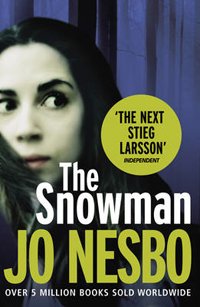 It will be pretty exciting if we ever get to read that.
It will be pretty exciting if we ever get to read that.
Yeah, I don’t know if you ever can, but that was the story that I planned when I first started writing. But the idea is still there so someday, maybe, I’ll write that story.
The novels have some fantastic set-pieces in them that, the way they’re described, sound ideal for cinema. What’s the latest on The Snowman, which is being made into a film?
I don’t know really. What I do know is that it’s still under development. Scorcese is still on board. He’s probably going to produce it. They are working on a script. I’ve seen the first or second draft of the script and it looks good, but that’s all I know. I don’t know about directors being attached to it or any actors.
You can read our review of Police here, and you’ll find Phantom here. We’ve also written a guide to Harry Hole.






